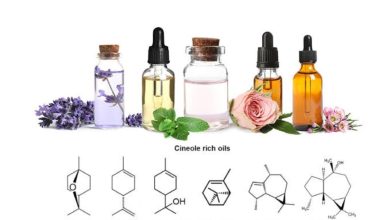Warning Issued Regarding the Use of ‘Nature’s Ozempic’ Supplement

Berberine, an extract derived from various plants and historically used in traditional Chinese medicine, has gained significant popularity through social media platforms like TikTok. The hashtag #berberine has amassed over 75 million views on TikTok, with social media influencers touting it as “Nature’s Ozempic” and claiming weight loss benefits from taking the supplement.
Typically available as a yellowy-orange powder enclosed in capsules or tablets, berberine is extracted from the roots, stems, and leaves of plants such as goldenseal and barberry. In addition to weight loss, it is also promoted for insulin resistance, polycystic ovary syndrome, and even cancer. However, medical experts caution that there is limited robust evidence to support its widespread use.
Dr. Reshmi Srinath, the director of the Mount Sinai Weight and Metabolism Management Program in New York, emphasizes the lack of substantial data on berberine. She finds it surprising that the compound has gained attention in the media. The National Center for Complementary and Integrative Health has issued a warning, highlighting the insufficiency of rigorous scientific evidence to establish its effectiveness.
Other specialists in endocrinology and weight management concur that the claims surrounding berberine are overstated, particularly regarding its impact on weight loss. Dr. Jaime Almandoz, the medical director of the UT Southwestern Weight Wellness Program, states that the available literature does not strongly support significant weight loss effects.
A review of 12 randomized controlled trials investigating berberine’s effects on obesity concluded that it moderately reduced body weight. However, these trials were conducted over a short duration, involved small participant groups, and weight loss was not the primary outcome measure.
Dr. Ivania Rizo, an endocrinologist at Boston University’s Chobanian & Avedisian School of Medicine, remarks on the limited number of randomized controlled trials, most of which have methodological flaws leading to an increased risk of bias.
Another review, encompassing 35 studies predominantly conducted on animals and human cells, similarly lacked sufficient power. Nonetheless, it suggested that berberine holds promise in reducing blood glucose levels. Conversely, a separate study observed that berberine treatment increased the body weight and appetite of rats.
The exact mechanism by which berberine produces these effects remains unclear. Some studies indicate that its activation of AMP-activated protein kinase, which enhances glucose tolerance in rats, may explain its potential for weight loss. This mechanism is akin to how metformin, a drug used for glycemic control in individuals with type 2 diabetes, operates. Other researchers have proposed a connection between berberine and the gut microbiome to elucidate its impact on type 2 diabetes and weight loss. However, the clinical data supporting this link are tenuous at best.





